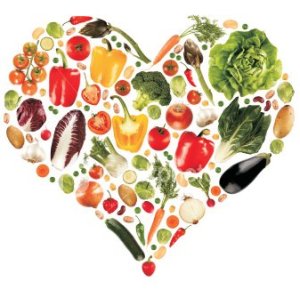Today is March 31st, Health and Nutrition Day. The date is worth remembering that food is essential for any living being and is much more than the simple act of eating. Associated with physical exercise, nutrition is directly linked to a person's quality of life and is a factor in preventing diseases such as diabetes and hypertension!
To improve our eating habits, let's remember the ten steps to healthy eating, listed in the Ministry of Health's Food Guide:
- Eat at least three meals (breakfast, lunch and dinner) and two healthy snacks per day. DO NOT SKIP MEALS.
Avoid “snacking” between meals, this will help you control your weight. Eat slowly.
- Include six servings of the cereal group daily (rice, corn, wheat, bread and pasta), tubers, such as potatoes, and roots, such as cassava, in your meals. Give preference to whole grains and foods in their most natural form.
- Eat at least three servings of vegetables daily as part of your meals and three servings or more of fruit for desserts and snacks.
Fruits, vegetables and greens are rich in vitamins, minerals and fiber and should be present daily in meals, as they contribute to protecting health and reducing the risk of various diseases.
Buy foods that are in season and pay attention to their quality and conservation status.
- Eat beans and rice every day or at least five times a week. This Brazilian dish is a complete combination of proteins and is good for your health.
Also use other types of legumes. Soybeans, chickpeas, dried peas and lentils can be cooked and also used in cold salads. Fava beans are also a legume with excellent nutritional quality. - Consume three servings of milk and dairy products and one serving of meat, poultry, fish or eggs daily. Removing visible fat from meat and skin from poultry before preparation makes these foods healthier!
Milk and dairy products are the main sources of calcium in the diet. Meat, poultry, fish and eggs are part of a nutritious diet and contribute to health and healthy growth. All are sources of proteins, vitamins and minerals.
Adults should prefer milk and dairy products with lower amounts of fat (skimmed). Pregnant women should prefer these foods in whole form, if there is no contrary advice from their nutritionist or doctor.
Eat more fish and chicken and always choose lean meats. If you choose a meat-free diet (with or without eggs, milk and dairy products), consult a nutritionist to receive the necessary guidance on adequate nutrition.
- Consume, at most, one portion per day of vegetable oils, olive oil, butter or margarine. Pay attention to food labels and choose those with lower amounts of trans fats.
Use small amounts of vegetable oil when cooking (canola, sunflower, corn, cottonseed and soybean), without exaggerating the quantities. One can of oil per month is enough for a family of four.
Use olive oil to dress salads, without exaggerating the quantity. Avoid using it for cooking, as it loses its nutritional quality when heated.
Prepare food in a way that uses a small amount of oil, such as roasts, stews, stews and grills. Avoid cooking with margarine, shortening or butter.
- Avoid industrialized soft drinks and juices, cakes, sweet and stuffed cookies, desserts and other treats as a rule of thumb.
Consume a maximum of one portion from the sugar and sweet group per day.
Choose cakes, breads and sweet cookies prepared at home, with little fat and sugar, without topping or filling.
- Reduce the amount of salt in your food and remove the salt shaker from the table. Avoid consuming processed foods with a lot of salt (sodium) such as hamburgers, beef jerky, hot dogs, sausages, ham, snacks, canned vegetables, soups, sauces and ready-made seasonings.
The amount of salt per day should be a maximum of one level teaspoon per person, distributed over all meals. Excessive sodium consumption increases the risk of high blood pressure and heart and kidney disease.
Use seasonings such as green chillies, garlic, onions and fresh and dried herbs or fruit juice, such as lemon, to season and enhance the natural flavor of food.
- Drink at least two liters (six to eight glasses) of water a day. Give preference to drinking water between meals.
Water is very important for the proper functioning of people's bodies at all ages. The intestine works better, the mouth stays moist and the body hydrated.
Use treated, boiled or filtered water for drinking and preparing meals and juices.
Offer water to children and the elderly throughout the day. They need to be actively encouraged to drink water.
Sugary drinks such as soft drinks and processed juices and caffeinated drinks such as coffee, black tea and mate tea should not replace water.
10. Make your life healthier. Practice at least 30 minutes of physical activity every day and avoid alcohol and smoking. Keep your weight within healthy limits.
Encourage children to play more active games like those you played outdoors in your childhood: jumping rope, running, hopscotch, hide and seek, tag, riding a bike and others.
Source:
- Food Guide – Ministry of Health – available athttp://189.28.128.100/nutricao/docs/geral/guia_alimentar_bolso.pdf>
- http://sandranutricionista.blogspot.com/
- http://portalamazonia.globo.com/pscript/noticias/noticias.php?pag=old&idN=33813

